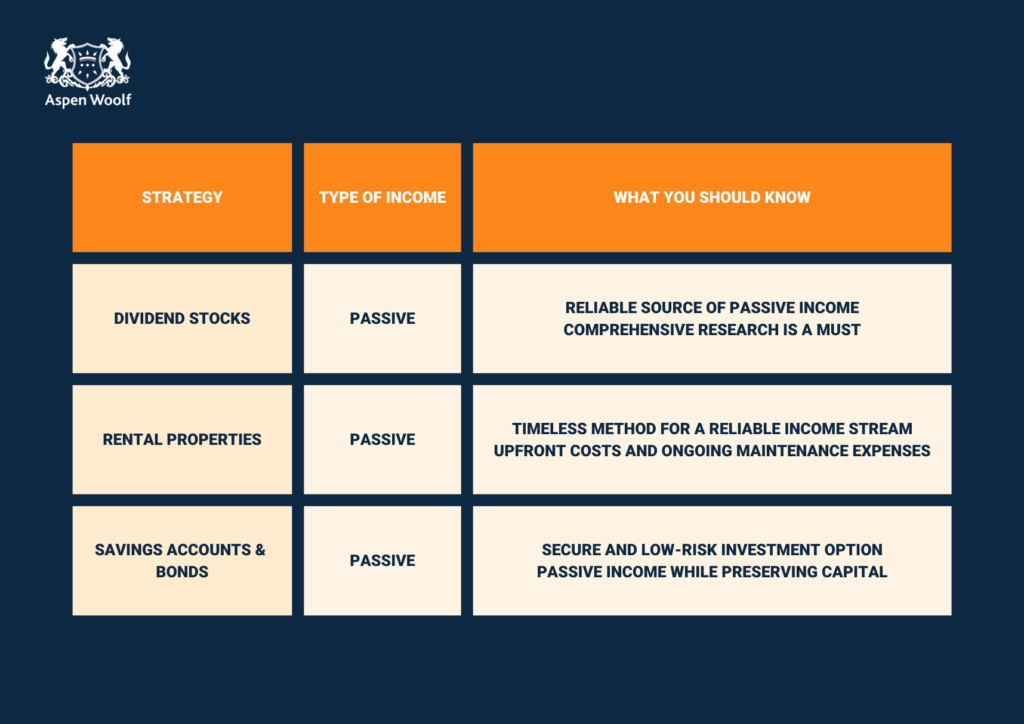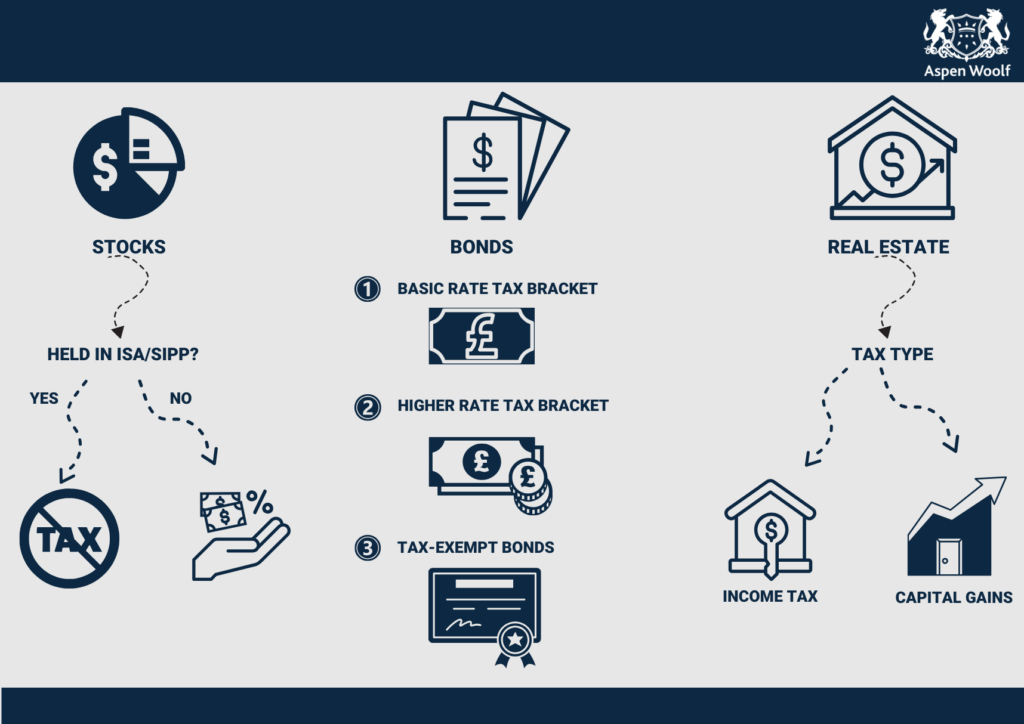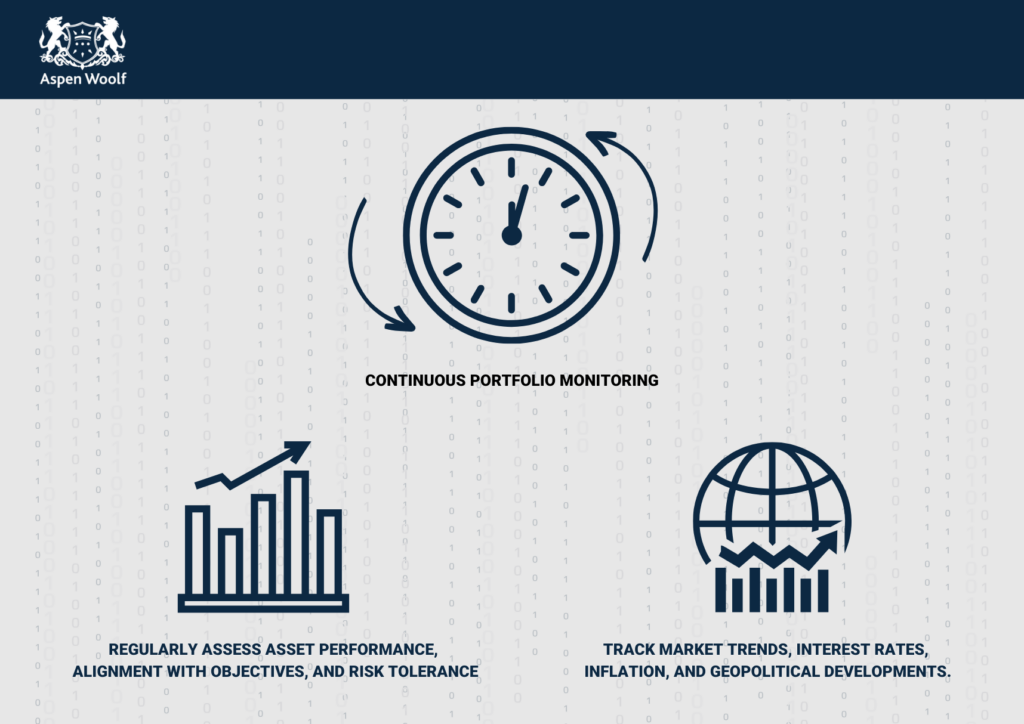How to Invest a Million Pounds in the UK

Congratulations on acquiring a substantial sum of 1 million pounds! Now, an exciting question arises: How to invest a million pounds in the UK, wisely? With numerous options available, navigating the investment landscape can feel overwhelming.
The investment possibilities may appear limitless, naturally evoking a mixture of anticipation and uncertainty. However, investing 1 million pounds requires careful planning and an in-depth comprehension of the complexities involved.
This guide provides expert insights and strategies to help individuals make informed choices, unravelling the complex world of financial success. Whether it’s real estate ventures or mastering the stock market, we explore various investment vehicles that unlock growth and prosperity. Together, let us solve the intricate million-pound puzzle and pave the path to financial success.
Understanding Your Goals: What To Do With 1 Million Pounds
Before beginning your investment journey with a million pounds, it is crucial to establish clear investment objectives and embrace risk tolerance. This pivotal step forms the bedrock of financial success, empowering you to make informed decisions.
Clarifying Investment Objectives
To unlock the full potential of your million-pound investment, you should align it with your long-term financial goals. Are you focused on a comfortable retirement? Or maybe you’re looking for a reliable source of passive income? Perhaps your aim is to achieve robust capital gains. By clearly defining your investment objectives, you can effectively guide and direct your wealth towards its intended destination.
Assessing Risk Tolerance
When you invest a million pounds, it’s imperative to strike a balance between potential rewards and the inherent risks. Assessing your comfort level with market uncertainties is key to shaping your investment objectives. One must remain vigilant of risks like market volatility, inflation, and economic shifts. With this understanding, you can fine-tune your million-pound investment strategy.
Diversification acts as a guiding principle, optimizing portfolio results while curbing undue risk. A knowledgeable and harmonized strategy paves the way for maximising returns on your million-pound investment.
Investment Vehicles: Where to Invest a Million Pounds
Several investment vehicles are at your disposal to enhance your wealth. Each vehicle carries its own set of advantages and risks.
How to Invest a Million Pounds in Real Estate
The allure of real estate is undeniable for those seeking to invest a million pounds. The UK property landscape offers numerous opportunities, from passive rental income to prospects for capital appreciation. Savvy investors can leverage tax advantages, such as mortgage interest deductions and capital gains exemptions. However, it’s crucial to be cognizant of significant initial costs, ongoing maintenance, and liquidity challenges.
Navigating the real estate domain with a million pounds demands a discerning eye and a strategic mindset to fully tap into the benefits of this asset class.
Stock Market Savvy
Delving into UK equities and funds offers an enticing path to long-term growth. While the stock market holds the potential for high returns, it necessitates a keen understanding of associated risks. As one ventures into this financial realm, embracing a diversified portfolio comprising stocks and funds emerges as a powerful tool. This approach helps navigate volatility and optimize investment returns effectively. To thrive in the stock market, aligning one’s investment time horizon and risk tolerance with chosen strategies becomes indispensable.
Embarking on a stock market journey in the UK requires a combination of expertise and intuition. It involves merging financial acumen with market awareness.
Fixed-Income Investments
For those looking to invest a million pounds with an inclination towards safety, fixed-income investments like bonds and debt instruments emerge as viable choices. In the vast spectrum of financial tools, bonds serve as a robust diversification method, promising a consistent return, especially during market volatilities. However, it’s crucial to note that compared to equities, fixed-income avenues tend to offer lower yields and might not entirely shield against inflation’s erosion.
When channeling a million pounds into fixed-income assets, blending financial acumen with a keen sense of risk tolerance is essential.
Venture Capital and Startups
Diving into the world of startups and venture capital holds the allure of high-risk, high-reward opportunities. This exciting realm presents a thrilling prospect for investors who seek exponential returns. However, it is essential to approach with caution and exercise meticulous due diligence since these investments carry substantial risks of failure.
Venturing into the world of startups and exploring opportunities in venture capital necessitates a strategic mindset alongside a discerning eye for innovation.
How to Invest a Million Pounds for Income
For investors aiming to invest a million pounds and generate reliable income, numerous strategies for generating income are available. In this discussion, we will explore some of the most compelling options that can lead to financial stability and prosperity.

Dividend Stocks and a Million Pounds
Dividend stocks are shares of companies that consistently distribute earnings to their shareholders. These stocks provide a reliable source of passive income, attracting investors seeking regular returns. Conducting comprehensive research into the company’s financial stability and historical dividend payments is crucial for making a well-informed investment decision.
Rental Properties and 1 Million Pounds
For those eager to invest a million pounds, buy-to-let properties stand as a proven avenue for cultivating a steady rental income. While this strategy offers the allure of passive returns, it’s essential to weigh the hefty initial outlay and recurring maintenance costs. To ease the journey, many opt for property management services, ensuring seamless operations and optimising returns.
High-Interest Savings Accounts and Bonds
For investors who prefer to avoid risks and aim for a steady income while seeking guaranteed returns, high-interest savings accounts and bonds offer a reliable choice. These investment options ensure both security and low risk, making them suitable for generating passive income while preserving capital.
By considering various income-generating strategies and aligning them with one’s financial goals and risk tolerance, individuals can pave the way to a prosperous future. This involves securing sustainable income from a million-pound investment while keeping in mind the importance of diversifying their portfolio and staying well-informed. Taking these steps will enable sound decision-making and yield fruitful results.
Maximizing Returns: Highest ROI Investments in the UK
Ambitious investors seeking exceptional returns may find that exploring high ROI investment opportunities can be a transformational move. However, it is important to understand that greater returns often come with increased risk. In this section, we will explore some compelling high ROI investments that have the potential to fuel your pursuit of financial success.
Identifying High-Return Investment Opportunities
To pursue high-return investments, one must possess a discerning eye for identifying emerging industries and trends that show promising growth potential. Sectors such as renewable energy, technology, and healthcare have exhibited a penchant for lucrative opportunities. By strategically aligning your investments with these dynamic sectors, you increase your chances of reaping substantial returns.
Examining Emerging Industries and Trends
The UK market provides abundant opportunities for lucrative ventures in emerging industries and trends. One such example is e-commerce, which has experienced remarkable growth due to changing consumer habits and the rise in online transactions. Additionally, both the fintech and biotech sectors have thrived, presenting unmatched investment potential. By staying informed about the latest market developments and exploring opportunities within these booming sectors, individuals can position themselves to gain maximum return on investment.
The Power of Compound Interest: Long-Term Investment Opportunities
Investing for the long term can unlock exponential growth potential by harnessing the remarkable power of compound interest. Compound interest is not just about earning interest on your initial investment, but also accumulating interest over time, which results in a compounding effect that significantly boosts wealth. Now, let’s explore how you can leverage this potential through long-term investment opportunities.
Understanding the Exponential Growth Potential of Compounding Returns
Compound interest functions like a snowball rolling downhill, continuously accumulating and growing your money. When you invest over the long haul, not only do your initial investments grow, but also the interest that builds up over time. This steady acceleration of wealth growth embodies the concept of compound interest. By remaining dedicated to long-term investments, you create the perfect conditions for this powerful phenomenon to work its wonders and propel your financial well-being to greater heights.
Long-Term Investment Strategies for Maximizing Compound Interest
To maximize the benefits of compound interest, it is crucial to engage in strategic long-term investment planning. Moreover, exploring opportunities across various sectors such as stocks, funds, and real estate can offer significant growth potential through compound interest. However, it is equally important to acknowledge and assess the potential risks and volatility associated with these asset classes when considering long-term investments.
Tax Considerations: Optimizing Your Investment for Maximum Returns
When it comes to investment strategies, considering taxes becomes crucial for maximizing returns. Understanding the tax implications associated with different investment options allows you to minimize tax liabilities effectively and boost your overall gains. Keep these key tax considerations in mind to optimize your investment potential.
Understanding Tax Implications for Different Investment Options
Each investment avenue comes with its own set of tax implications. By delving into the tax considerations of your chosen investments, you can strategically align your portfolio to capitalize on tax-efficient strategies. For instance, tax treatment varies between equities, fixed-income instruments, and real estate ventures. With astute tax planning, you can optimize your investment returns by leveraging tax advantages and minimizing tax burdens.

Equities (Stocks):
Investing in stocks entails purchasing shares from publicly traded companies. In the United Kingdom, the tax treatment of stocks primarily relies on whether they are held within a tax-efficient account like an Individual Savings Account (ISA) or a Self-Invested Personal Pension (SIPP). When stocks are held in an ISA or SIPP, any capital gains and dividends earned remain free from taxation, enabling investors to expand their investments without incurring additional tax burdens. However, if stocks are held outside of tax-efficient accounts, Capital Gains Tax (CGT) may apply when selling the stocks and making profitable gains. The CGT rate is determined by both your income tax bracket and the total amount of gains realized in a given tax year. Monitoring the taxation implications of buying and selling stocks becomes crucial for optimizing your overall returns.
Fixed-Income Instruments (Bonds):
Bonds, such as government bonds and corporate bonds, provide investors with fixed interest payments. The interest income earned from bonds is generally subject to Income Tax. For individuals in the basic rate tax bracket, the interest income is taxed at the basic rate. On the other hand, higher rate taxpayers are required to pay a higher rate of Income Tax on bond interest. However, there are certain types of bonds called tax-free or tax-exempt bonds that offer interest payments not subjected to Income Tax. One example of such a bond is the Individual Savings Account (ISA) bond, which provides tax-free interest income. When considering investments in fixed-income securities, it becomes important to understand the tax implications associated with the interest income received in order to make informed decisions about your investment portfolio.
Real Estate Ventures:
Investing in real estate, specifically buy-to-let properties, can provide both rental income and potential capital gains. Rental income from buy-to-let properties is subject to Income Tax regulations. Landlords must report their rental income and experiences to HM Revenue and Customs (HMRC) and pay the applicable Income Tax on their profits after deducting allowable expenses. Moreover, when purchasing properties, buy-to-let landlords need to consider Stamp Duty Land Tax (SDLT), and when selling properties, Capital Gains Tax (CGT) applies. However, property investors can benefit from tax reliefs and allowances such as the Annual Exempt Amount for CGT computation and tax deductions for eligible expenses. To make the most of your real estate investments, understanding the associated tax implications concerning rental income, capital gains, and property-related taxes is crucial.
Seeking Professional Tax Advice For Your Million Pound Investment
Understanding the tax implications when you invest a million pounds is vital. Tax laws are intricate and constantly evolving. Consulting with tax professionals offers invaluable insights into taxation complexities, helping tailor investment strategies to your financial aspirations. These experts provide advice on tax-efficient investment vehicles, ensuring you navigate the ever-changing tax landscape confidently.
Managing Risks and Protecting Wealth After You Invest a Million Pounds
Effectively managing risks is essential for safeguarding your investment and protecting your wealth. Consider implementing these risk management strategies to ensure a secure financial future:
Diversifying Across Asset Classes and Sectors
Diversifying your investment is crucial for building a resilient approach. By spreading your investments across different asset classes like equities, bonds, and real estate, as well as various sectors, you can reduce the vulnerability to specific risks. This strategic allocation helps balance potential losses, ensuring that a downturn in one sector doesn’t negatively affect your entire portfolio.
Using Stop-Loss Orders and Risk Management Techniques
To enhance the protection of your investment, it is advisable to incorporate stop-loss orders and risk management techniques. A stop-loss order allows you to establish a predetermined selling price for a security. By executing this order when the security reaches that set price, potential losses can be limited during market downturns. Moreover, proactive risk management techniques such as asset rebalancing and regular reviews can help maintain a well-aligned portfolio in response to changing market conditions.
In the realm of investments, having foresight and staying vigilant acts as a shield against uncertainties. By effectively managing risks and implementing well-crafted strategies for risk management, one can cultivate their investment with the resilience it deserves, safeguarding and growing wealth in the long term.
Monitoring and Adjusting: Staying Ahead of the Curve in a Dynamic Market
Regularly reviewing your investment portfolio and making necessary adjustments is essential to stay ahead in a dynamic market. As market conditions continuously evolve, adopting a responsive approach ensures that your investments align well with your financial goals. Here are some strategies you may want to consider:

Regularly Reviewing Your Million Pound Investment Portfolio
When you invest a million pounds, ongoing scrutiny of your investment portfolio becomes essential for sustained success. Regular reviews ensure that your investments continue to match your goals and risk appetite. As you evaluate, take into account the performance of individual assets, asset classes, and sectors to pinpoint areas for adjustment. Such an informed review offers insights into potential rebalancing and keeps your million-pound investment journey aligned.
Staying Informed about Market Trends and Macroeconomic Factors
Staying well-informed about market trends and macroeconomic factors plays a crucial role in making informed investment decisions. Market trends can offer valuable insights into potential shifts across different sectors, presenting opportunities for capitalizing on emerging prospects. Moreover, staying updated on macroeconomic factors such as interest rates, inflation, and geopolitical developments aids in anticipating market movements and adjusting portfolio strategies accordingly.
Conclusion
When considering how to invest a million pounds, it is crucial to carefully assess your financial goals, risk tolerance, and investment time horizon. There are various investment vehicles and strategies available to help you meet your investment objectives. By diversifying your portfolio, managing risks effectively, and staying informed about market trends, you can maximize returns and safeguard your wealth. For personalized advice aligned with your long-term financial goals, it is advisable to seek assistance from a professional who can develop a tailored investment plan.

